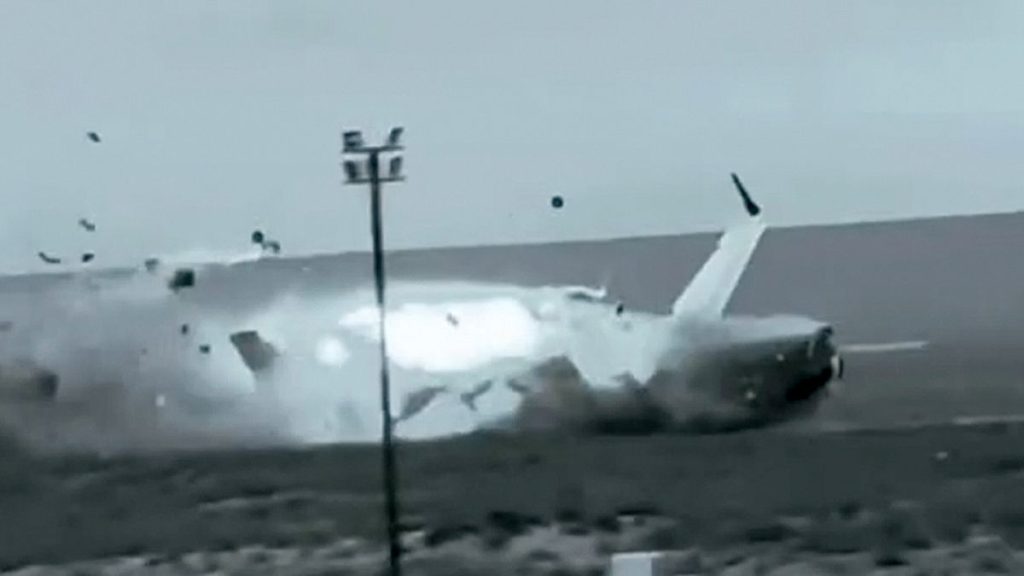Kazakhstan’s decision to send the flight recorders of the downed Azerbaijan Airlines flight to Brazil underscores its commitment to transparency in the investigation of the tragic incident. The move comes after consultations with Azerbaijan and Russia, and aligns with Annex 13 of the Chicago Convention, which stipulates that the state conducting the investigation is responsible for the data retrieval and selection of a suitable country for analysis. Brazil’s expertise is relevant given the aircraft’s manufacture there. This decision reflects Kazakhstan’s acknowledgement of Azerbaijan’s call for a thorough and unbiased investigation into the circumstances surrounding the crash, which occurred during an attempted emergency landing near Aktau.
The backdrop to this decision is fraught with tension and conflicting narratives. Azerbaijan’s President Ilham Aliyev has publicly asserted that the aircraft, Flight 8432, was struck by ground fire originating from within Russia, rendering it uncontrollable due to alleged electronic warfare interference. Aliyev’s accusations extend to Russia’s initial response, characterizing it as an attempt to suppress the truth. He claims that for the first three days following the incident, Russia offered only “delirious versions” of events, adding to the distress and suspicion surrounding the tragedy. This has led to a direct confrontation between the two nations, with Aliyev demanding an apology, an admission of guilt, and compensation from Russia.
Aliyev’s stance reflects Azerbaijan’s deep skepticism about Russia’s narrative and its potential influence over any investigative process held within its sphere of control. He specifically expressed reservations about the Interstate Aviation Committee, a body overseeing civil aviation in the Commonwealth of Independent States, which is predominantly composed of Russian officials. Aliyev’s concern, articulated publicly, is that such a composition could compromise the objectivity of the investigation, thus necessitating an independent and internationally led process. His insistence on sending the black boxes to Brazil underscores this desire for an impartial investigation outside of Russian influence.
While Russian President Vladimir Putin subsequently apologized to Aliyev, terming the incident a “tragic incident,” he stopped short of accepting responsibility. The Kremlin’s explanation attributed the incident to the activation of air defense systems near Grozny, the city where the plane initially sought an emergency landing, claiming they were responding to a Ukrainian drone strike. This differing account fuels the contention between the two countries and underscores the importance of the black box data in providing definitive answers about the sequence of events leading to the crash.
The selection of Brazil as the site for analyzing the flight recorders appears to be a strategic move aimed at ensuring impartiality. By entrusting the process to a nation uninvolved in the immediate geopolitical dynamics of the region, Kazakhstan aims to bolster the credibility of the investigation’s findings. This is particularly crucial given the sensitive nature of the incident and the allegations of Russian involvement. The data extracted from the black boxes is expected to provide critical insights into the flight’s final moments, potentially revealing the cause of the downing and shedding light on the contributing factors.
The investigation into the Azerbaijan Airlines Flight 8432 crash remains a sensitive and complex matter, with geopolitical implications and the potential to strain relations between Azerbaijan and Russia. The decision to send the flight recorders to Brazil signifies a crucial step towards uncovering the truth behind the tragedy. The international community awaits the results of this analysis, which holds the key to understanding the circumstances surrounding the crash and providing closure to the families of the victims, while also potentially determining accountability and shaping future diplomatic relations. The black boxes, now in Brazil, are expected to offer the definitive account of this tragic event, and their analysis will be closely scrutinized by all parties involved, as well as international observers.














